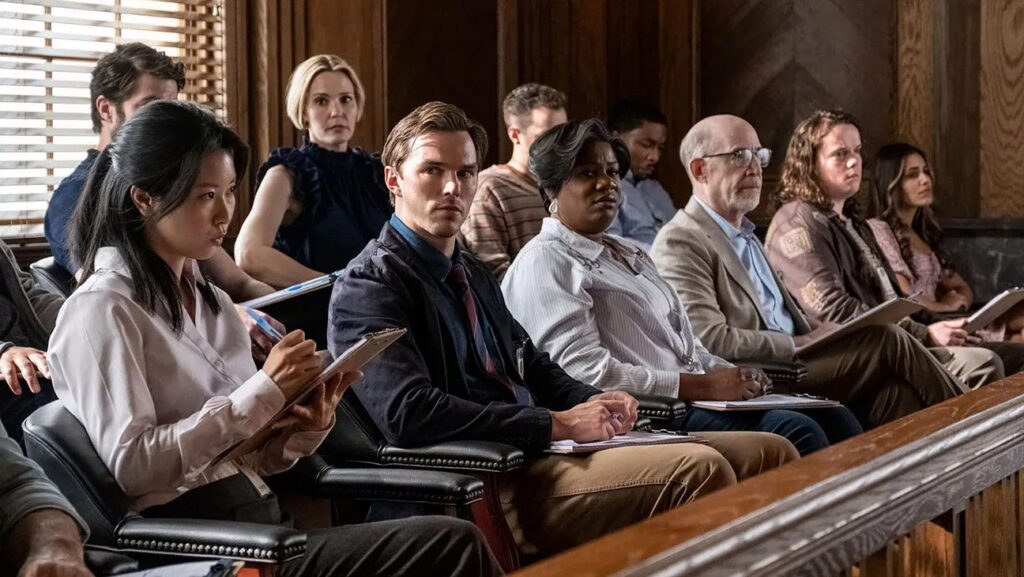Clint Eastwood’s Juror No. 2 is the work of a filmmaker who once defined cinematic mastery but now seems to be grappling with the limitations of time.
At 93, Eastwood remains a towering figure in American cinema, his body of work a testament to decades of innovation and storytelling prowess. But his latest effort feels like a shadow of the sharp, tightly controlled films that made his name.
While Juror No. 2 begins with an intriguing premise—Nicholas Hoult plays a juror who suspects he may have killed the victim in a hit-and-run accident—the story unravels rather than unfolds, weighed down by uneven direction and a puzzling sense of inertia.
The first misstep comes early. The story’s central twist—Hoult’s realization of his own guilt—arrives in the opening act, effectively squandering the narrative tension.
Instead of building a slow crescendo of moral conflict and courtroom suspense, the film detours into a perplexing side plot in which the jurors take on the roles of private investigators. What could have been a gripping meditation on guilt and justice is instead diluted into a clunky procedural that never quite finds its footing.
The Southern setting, ostensibly intended to lend the film a sense of atmosphere and weight, is similarly undercut by missteps. The accents range from cartoonish to non-existent, leaving the characters sounding like they’re from entirely different regions of the country. It’s a small detail, but one that highlights the film’s broader struggle to establish a cohesive tone.
Visually, the film bears the hallmarks of a director whose once-fluid style now feels rigid and cautious. Eastwood’s past work thrived on economy and precision—every frame purposeful, every silence loaded with meaning.
In Juror No. 2, however, scenes linger too long, dialogue meanders, and the courtroom, which should bristle with tension, feels flat and overlit. It’s as if Eastwood’s once-steady hand has grown tentative, uncertain of how to wield the tools that once came so naturally to him.
Even the performances feel muted by the film’s shortcomings. Hoult tries valiantly to convey the inner turmoil of a man caught between self-preservation and a moral obligation to confess, but the script gives him little room to breathe.
Toni Collette fares better, injecting her role as a defense attorney with a welcome dose of fire and wit, yet even her best moments are undercut by clunky dialogue and contrived plot developments.
There are glimmers of Eastwood’s brilliance—fleeting moments when his fascination with guilt and redemption shines through. A solitary confession scene carries genuine emotional weight, and a few visual choices nod to his enduring grasp of cinematic language. But these moments feel like echoes of a filmmaker who, like the protagonist of Juror No. 2, seems haunted by his own past.
Juror No. 2 is less a courtroom thriller than a quiet reckoning—Eastwood wrestling with the realities of age and the burden of his storied legacy.
It’s not a failure, but neither is it a triumph. Instead, it’s a melancholy reminder that even the greatest talents are not immune to the passage of time.

